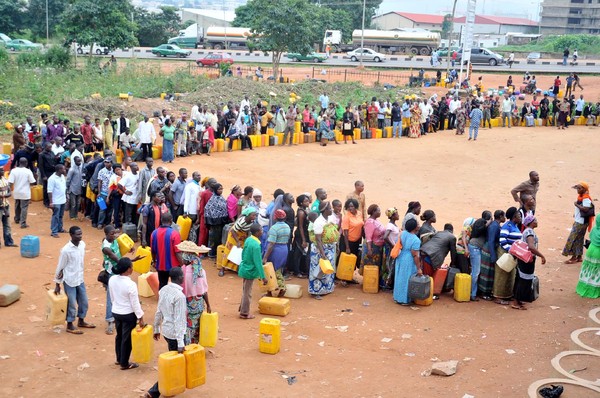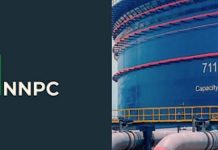
Industry regulators, the Department of Petroleum Resources (DPR), and Petroleum Products Pricing Regulatory Agency (PPPRA), have deliberately withheld importation data for kerosene, as scarcity hits the market with price differentiation.
Even the Nigerian National Petroleum Corporation (NNPC), the biggest importer of the product could not offer any assistance.
Households (which are end-users of the product), and marketers have decried irregularities in the supply kerosene, called Dual Purpose Kerosene (DPK) due to its household and aviation fuel uses.Speaking to The Guardian at separate interviews, none of the mentioned agencies – DPR, PPPRA, and NNPC was willing to produce comprehensive data on the country’s DPK importation exercise, or even data on the locally-sourced DPK, which they claimed were received from the local refineries at Port Harcourt, Warri, and Kaduna.
The Group General Manager, Group Public Affairs Division, NNPC, Ndu Ughamadu, in a telephone interview, said the DPR and PPPRA were the agencies responsible for compilation of importation data and not the NNPC.
He stressed that only both agencies – DPR and PPPRA- could provide the actual DPK importation data for all parties importing the product into the country.He, however, said the NNPC could avail The Guardian of its DPK importation data, but could not provide any after over a week of making the request.
But Ughamadu had earlier said: “A bulk of the product (DPK) is received from the country’s three refineries. NNPC’s importation only augments what is being refined locally.
”Similarly, the spokesperson for PPPRA, Reuben Apollo, noted that although the NNPC is the biggest importer DPK currently, other marketers too were importing the product, but could not validate the claim with data.
He admitted that the country had experienced a little drop in the quantity of DPK imported because more Nigerians were embracing Liquefied Petroleum Gas (LPG), otherwise called cooking gas, as an alternative.
Owing to the increasing adoption of LPG, he said local demand for kerosene is dropping, but could not explain the high cost of the product in the filling stations, which negates basic economics of the lower the demand, the lower the supply.
When The Guardian reached the DPR spokesperson, Paul Osu, he said the agency was only concerned about quality control of products being imported into Nigeria, and cannot give the needed statistics on the quantity.He insisted that the NNPC was in a better position to give the accurate data on imported DPK.
The pump price for Kerosene is currently put between N222 and N225 per litre, while the depot price for the product is between N210 and N212, according to some members of the Independent Petroleum Marketers Association of Nigeria (IPMAN).A consumer resident at the Ojodu area of Lagos, Bola Aina, said for some years now, the price of the product had continued to appreciate, adding that availability had also remained skeletal, as it is very unlikely to always have kerosene at filling stations in the area.
Another consumer at Isolo, Lagos, Theresa Ndem, said: “As a result of the high price of kerosene, I now have a small gas cooker in my house. Sometimes the gas in my cooker finishes unexpectedly when I need to prepare meals for my family; I quickly switch to my stove, but that will be for a short time, as I cannot afford the high cost of kerosene now. For me, cooking gas is far becoming cheaper and cleaner.”
The Executive Secretary, Depot and Petroleum Products Marketers Association (DAPPMA), Femi Adewole, noted that there is no official price for aviation fuel (Jet A1), as the market price is determined by negotiation between the aviation company, and the marketer.A major dealer on aviation fuel,
Forte Oil, confirmed that the product is being sold for N235/per litre.Visits to three NNPC retail stations in Lagos during the week, revealed that the stations had no stock of Kerosene; and it was gathered that the unavailability of the product had been for a while.












